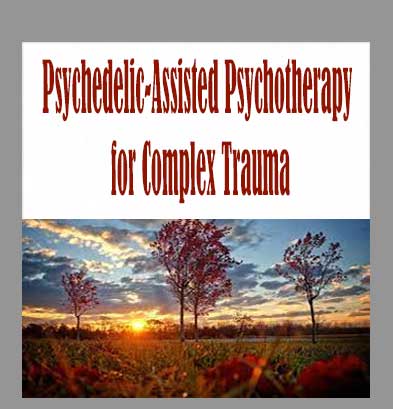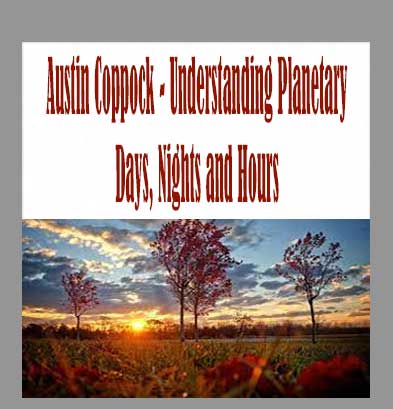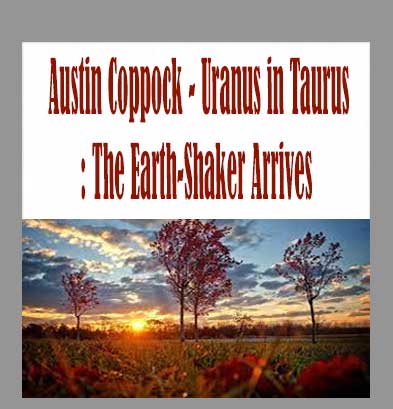
Description
Psychedelic-Assisted Psychotherapy for Complex Trauma: Core Principals and Clinical Applications for the Future of Trauma Treatment download , Psychedelic-Assisted Psychotherapy for Complex Trauma: Core Principals and Clinical Applications for the Future of Trauma Treatment review , Psychedelic-Assisted Psychotherapy for Complex Trauma: Core Principals and Clinical Applications for the Future of Trauma Treatment free
Psychedelic-Assisted Psychotherapy for Complex Trauma: Core Principals and Clinical Applications for the Future of Trauma Treatment
Psychedelic-Assisted Psychotherapy (PAP) has been proven to treat even the most complex trauma faster, for longer, and without causing your clients more pain.
It’s no wonder that your clients are trying to do PAP on their own or asking you about it. Now is the time to get the training to answer their questions like the experts.
This one-of-a-kind training brings together the most prominent voices in traumatology and PAP in an intimate conversational style training that combines ground-breaking research, clinical insight, and inviable expertise.
Sit side-by-side with Linda Curran as she interviews an all-star cast of renowned experts who will show you exactly how PAP has turned the field of trauma treatment upside down. Plus, hear how they’re integrating PAP and other altered-state healing practices into trusted modalities you’re already using, like Internal Family Systems (IFS), Polyvagal Theory, Acceptance and Commitment Therapy (ACT), and more!
Featuring rarely seen expert-to-expert clinical conversations with…
Bessel van der Kolk, MD, on differentiating ketamine, MDMA, and psilocybin.
Stephen Porges, PhD, on integrating psilocybin-assisted therapy with Polyvagal Theory.
Stacia Butterfield on altered state healing using breathwork.
Leslie Korn, PhD, MPH, LMHC, ACS, FNTP, BCTMB, on assessing which clients are right for PAP.
Rosalind Watts, PhD, on building trust and rappot to get the most out of PAP.
Victor Cabral, MSW, LSW, CCTP-I, on treating veterans with PTSD, chronic pain, insomnia, anxiety & more.
Hannah McLane, MD, MA, MPH, on psychedelic legalization and ethical facilitator training.
You walk away with a complete framework for how psychedelic medicine and other altered-state healing practices are evolving trauma treatment and how they can elevate your practice today!
Get started now!
WHAT WILL I LEARN?
Get powerful new treatment strategies, anchored to modalities you’re already using (like IFS, ACT, and Polyvagal Theory), in this easily accessible training designed for clinicians at any stage of their PAP journey.
- Develop a deeper understanding of the various psychedelic medications available for trauma treatment — both pharmaceutical and plant-based varieties — including MDMA, psilocybin, ketamine, ayahuasca, psychedelic cannabis, and more.
- Differentiate the ways each medication treats unique trauma wounds and recognize the appropriate time and setting for each.
- Discover non-psychedelic forms of altered-state healing, including breath and sound work and guided imagery.
- Learn how to support clients looking for PAP, even if you can’t offer the services yourself.
- Earn up to 11.75 CE Hours at no additional cost to you!
Part 1: MDMA & MDMA Assisted Psychotherapy
Discover ways MDMA therapy can address ACES and treat childhood trauma, plus IFS Founder Richard Schwartz shows you how to integrate MDMA Therapy with Internal Family Systems.
You’ll get an introduction to Holotropic Breathwork (a powerful form of altered-state healing that doesn’t require medicine) and develop a deeper understanding of the role music can play in Psychedelic-Assisted Psychotherapy.
MDMA Therapy Training
- Interview with Michael Mithoefer, MD
- Interview with Victor Cabral, LSW, CCTP-I
- Interview with Jim Hopper, PhD
- Interview with Rosalind Watts, PhD
- Interview with Hannah McLane, MD, MA, MPH
History & Pharmacology of MDMA
- Holotropic Breathwork
- Interview with Michael Mithoefer, MD
- Interview with Stacia Butterfield
- Interview with Jim Hopper, PhD
- Interview with Bessel van der Kolk, MD
Drugscience.org.uk MDMA Information
- What is MDMA
- Scheduling of Drugs
- Drug Classes
- Stimulants
- Hallucinogens
- Dissociative Anesthetics
- Risks of MDMA
- MDMA Pharmacology
- Psychoactive Properties
- Physiological Effects
- Psychological Effects
- Therapeutic Applications
- Treatment Process & Steps
MDMA Treatment Process/Steps
- ACES & Childhood Trauma: Interview with Deran Young, LCSW
- Trauma-Informed Care: Interview with Victor Cabral, LSW, CCTP-I
- MDMA Outcomes: Interview with Michael Mithoefer, MD
- Internal Family Systems Therapy: Interviews with Richard Schwartz, PhD; Bessel van der Kolk MD; Deran Young, LCSW
- MDMA Therapy Training: Set & Setting: Interview with Jennifer Baldwin, PhD
- Music in Psychedelic-Assisted Therapy: Interview with Mendel Kaelen, PhD
- Significance of Trauma: Interview with Leslie Korn, PhD, MPH
- Preparation, Medicine, Integration: Interview with Jennifer Baldwin, PhD & Jim Hopper PhD
Conclusion of Part 1
- Resources
Part 2: Psilocybin & Psilocybin Assisted Therapy Training
Dive into the world of Psilocybin Assisted Therapy and discover how to apply it to common modalities and strategies you’re already using, like Guided Imagery, Acceptance & Commitment Therapy, and the Polyvagal Theory (from theory founder Stephen Porges).
You’ll learn more about psilocybin trials for depression treatment, why more research is needed, and how touch is used in clinical work — including discussions regarding therapist accountability and harm reduction.
- How to Start Working with Medicines: Interview with Jennifer Baldwin, PhD
- Training to do Medication Work, Good Trauma Treatment, & Psychedelic Treatment in Trauma Informed Therapy: Interview with Jim Hopper, PhD
- Training with Medications: Michael Mithoefer, MD
Other Drugs: Interview with Jennifer Baldwin, PhD
- Introduction to Ketamine
- Psychedelic Cannabis
- MDMA
- Classic Psychedelics
Drugscience.org.uk Psilocybin Information
- What is Psilocybin
- Psilocybin History
- Potential Harm
- Psilocybin Pharmacology
- Therapeutic Applications, Mechanisms, & Practicalities
- Preparatory Psychotherapy
- Active Psilocybin Sessions
- Integrative Psychotherapy
- Why We Need More Research
Interview with Rosalind Watts, PhD
- Psilocybin Trails for Depression at the Imperial College in London, Visualization, Treatment Preparation, Integration, & Psychological Flexibility
- Guided Imagery: Interview with Belleruth Naparstek
- Challenges with Schedules for Treatment: Interview with Michael Mithoefer, MD
- Acceptance & Commitment Therapy, Being Grounded in the Body, Trauma & Addiction: Interview with Jim Hopper, PhD
The Polyvagal Theory
- Interview with Stephen Porges, PhD
- Interview with Bessel van der Kolk, MD
- Interview with Rosalind Watts, PhD
Underground Therapists & Clinical Implications
- Interview with Michael Mithoefer, MD
- Interview with Jim Hopper, PhD
- Interview with Bessel van der Kolk, MD
Touch in Clinical Work
- Harry Harlow Monkey Studies
- Brain Development: Interview with Linda Curran
- Permission to Touch: Interview with Michael Mitheofer, MD
- Therapist Accountability: Interview with Jim Hopper, PhD
- Accountability & Safety: Interview with Rosalind Watts, PhD
- Medication Treatment Guidelines & Psychedelic Training: Interview with Bessel van der Kolk, MD
- Medication Treatment Guidelines: Interview with Mendel Kaelen, PhD
- Harm Reduction: Interview with Jennifer Baldwin, PhD
Conclusion of Part 2
- Resources
Part 3: Ketamine & Ketamine Assisted Psychotherapy
Find out how to facilitate safe experiences, centered on inclusivity and equity, using Ketamine Assisted Psychotherapy, as well as create emotional and psychological safety for your marginalized clients.
You’ll discover how ketamine therapy can be combined with IFS strategies to maximize treatment and get the latest information and valuable clinical insights regarding psychedelic legalization and regulation.
Experiences with Ketamine & Creating Safety: Interview with Bessel van der Kolk, MDFacilitating Experiences: Interview with Mendel Kaelen, PhD
Interview with Jennifer Baldwin, PhD
- MDMA Assisted Group Therapy
- Set & Setting
- What is the Wound? What is the Practice? What is the Medicine?
- Circular Conscious Breathing
Interview with Staci Butterfield
- Somatic Awareness
- Plant Medicine & Holotropic Breathwork
- Stan Grof: The Healing Potential of Non-Ordinary States of Consciousness Video Clips
- Grof Cartography of the Psyche
- Exploration of Breath
- Breathwork Training
- Music for Holotropic Breathwork: Interview with Mendel Kaelen, PhD
- Contraindications to Holotropic Breathwork
Interview with Bessel van der Kolk, MD
- Clinical Experiences Working with Patients Using Ketamine & MDMA
- Positive & Negative Impacts of MDMA & Ketamine
- How to Introduce Ketamine to Clients
Interview with Leslie Korn, PhD, MPH
- Complex Trauma & the Importance of Creating Safety
- Dissociative Drugs
Interview with Jim Hopper, PhD
- Preparation for Ketamine Assisted Therapy
- Clinical Experiences Using Ketamine
Drugscience.org.uk Ketamine Information
- What is Ketamine?
- Recreational Use & Mental Health Use
- Ketamine Research
- Ketamine Pharmacology
- Ketamine Assisted Psychotherapy & Off-Label Ketamine Treatment
Ketamine in Clinical Context: Interview with Jennifer Baldwin, PhD
The Differential Effects of Psychedelic Drugs: Interview with Bessel van der Kolk, MD
Being a Medical Doctor Providing Ketamine: Interview with Michael Mitheofer, MD
Internal Family Systems & Ketamine: Interviews with Deran Young, LCSW & Jennifer Baldwin, PhD
Interview with Victor Cabral, LSW, CCTP-I
- Policy in the Psychedelic State
- Post Graduate Certificate in Ketamine Assisted Therapy
- Personal Experiences with Ketamine
- Internal Family Systems & Ketamine and Communal Healing
Hannah McLane, MD, MA, MPH
- Ketamine Assisted Psychotherapy with Psychoanalysis
- Psilocybin Facilitators Trainings
- Psychedelic Legalization
Benefits, Intention, & Processing of Psychedelics: Interviews with Jim Hopper, PhD & Michael Mithoefer, MD
Interview with Hannah McLane, MD, MA, MPH
- Inner Healing
- Intelligence
- Neuroplasticity
Holding the Space for Clients in a Psychedelic State: Interview with Jim Hopper, PhD
Psychedelic Training Programs & Resources: Interview with Michael Mithoefer, MD
Interview with Deran Young, LCSW
- Internal Family Systems
- Collective Resonance of Parts
- Creating Emotional and Psychological Safety at Work for Marginalized People
- Inclusivity & Equity
Interview with Victor Cabral, LSW, CCTP-I
- Making Polices & Regulations for Psychedelics
- Documentary: “Transcendence” Trailer
Conclusion of Part 3 & Psychedelic-Assisted Therapy Program
- Resources & Training Recommendations
- Contributor Bios
Course Experts
Linda A. Curran, BCPC, LPC, CAC-D, CCDPD, EMDR-C, sought after national trainer, best-selling author and film producer, has trained thousands of mental health clinicians across the country on trauma treatment. She is President of Integrative Trauma Treatment, LLC, in Havertown, PA. With advanced degrees in both clinical psychology and public health, Linda is a Board Certified, Licensed Professional Counselor; Certified Addiction Counselor Diplomate; Certified Co-Occurring Professional Diplomate; Certified Gestalt Therapist; Certified Neurofeedback Practitioner; Certified Hypnotherapist; and Level II EMDR Practitioner.
Michael Mithoefer, MD, is a psychiatrist living in Asheville, NC. He and his wife, Annie, completed the first MAPS-sponsored Phase II clinical trial testing MDMA-assisted psychotherapy for crime-related PTSD, a subsequent study with military veterans, firefighters, and police officers, and a pilot study treating couples with MDMA combined with Cognitive Behavioral Conjoint Therapy for PTSD.
Victor Cabral, MSW, LSW, CCTP-I, (He/Him/His) is a collaborative and strategic leader who is making an impact on historical inequalities in his community and across the United States. Victor is the Founder of Dreamers of the Day, LLC, and serves as the Director of Policy and Regulatory Affairs for Fluence International Inc., a company that provides evidence-based training in psychedelic therapy and integration services to clinicians across the globe. Before joining Fluence, Victor served as Deputy Director for the Pennsylvania Governor’s Office of Advocacy and Reform where he co-led the implementation of the Trauma-Informed PA Plan, helped establish the first Racial Day of Healing in state history, and developed free trauma trainings for Pennsylvanians in collaboration with BIPOC mental health and trauma, and psychedelic medicine.
Jim Hopper, PhD, is a researcher and consultant most often sought for his expertise on the neurobiology of trauma and sexual assault, and on the unique experiences and needs of males who have experienced sexual abuse or sexual assault.Since 2018, he has worked as a therapist and sub-investigator at the Boston site of the FDA-approved and MAPS-sponsored phase 3 trial of MDMA-Assisted Therapy for PTSD. He also provides ketamine-assisted psychotherapy in private practice and am a course director for a Harvard Medical School conference on psychedelic-assisted psychotherapy.
Rosalind Watts, PhD, is a clinical psychologist, a mother, and a nature lover. Her work as the Clinical Lead for Imperial College London’s psilocybin trial has made her one of the most prominent voices and minds in the field of psychedelic research.Dr. Watts has been named as one of the 50 Most Influential People in Psychedelics as well as one of the Top 16 Women Shaping the Future of Psychedelics, with her focus on integration, harm-reduction, and inclusion in the psychedelic space.
Hannah McLane, MD, MA, MPH, is a physician, psychoanalyst, and entrepreneur. She is the Founder of SoundMind Institute, a Philadelphia and Oregon-based psychedelic facilitator training and research initiative aimed at bringing ethics, equity and innovation to the psychedelic ecosystem. She conducts research on cognitive diversity, psychedelic science, ethics, PTSD, and emerging alternative therapies for mental health issues.
Stacia Butterfield is a certified Holotropic Breathwork facilitator. Over the last two decades she has introduced Holotropic Breathwork to large public groups and a variety of academic and professional settings, including California Institute of Integral Studies, Tel Aviv University, MAPS Psychedelic Science 2013 & 2017 conferences, Sophia University, Kripalu and the Fetzer Institute. Stacia’s long interest in the wisdom of the body and deep trust in the intrinsic healing orientation of the psyche informs her work with others.
Bessel A. van der Kolk, MD, is a clinician, researcher, and teacher in the area of post-traumatic stress. His work integrates developmental, neurobiological, psychodynamic, and interpersonal aspects of the impact of trauma and its treatment.Dr. van der Kolk and his various collaborators have published extensively on the impact of trauma on development, such as dissociative problems, borderline personality and self-mutilation, cognitive development, memory, and the psychobiology of trauma. He has published over 150 peer-reviewed scientific articles on such diverse topics as neuroimaging, self-injury, memory, neurofeedback, Developmental Trauma, yoga, theater, and EMDR.
Deran Young, LCSW, is a licensed therapist, CDWF, CDTL, Co-Author of New York Times Best Seller, You Are Your Best Thing, retired military officer, and the founder of Black Therapists Rock – a nonprofit organization committed to reducing the psychological impact of systemic oppression and intergenerational trauma.Her passion for culture and people has led her to become a highly sought-after diversity and inclusion consultant working with companies like BBERG, Facebook, Linked In, Field Trip Health, and YWCA.
Richard Schwartz, PhD, developed Internal Family Systems (IFS) in response to clients’ descriptions of various parts within themselves. IFS is now evidence-based and has become a widely used form of psychotherapy, particularly with trauma. It provides a non-pathologizing, optimistic, and empowering perspective and a practical and effective set of techniques for working with individuals, couples, families, and more recently, corporations and classrooms.
Jennifer Baldwin, Rev., PhD, LPC, NCC, ACS, CIFST, SEP, KAP, BC-TMH, is a theologian, therapist, and trainer at Grounding Flight Wellness in Woodstock, GA, where she specializes in trauma recovery/PTSD, vocational discernment and school success, anxiety/depression, self-injury, and identity exploration. She also provides trainings for clergy and spiritual care professionals in trauma sensitive theology and religious leadership.
Mendel Kaelen, PhD, is the founder and CEO Of Wavepaths, an organization that enables therapists and clinicians to work with music in a truly person-centred way, as an extension of the therapeutic relationships with clients.Prior to Wavepaths, he worked as a PhD and postdoctoral neuroscientist at Imperial College London since 2012, where his research was the one of the first to demonstrate music’s central role in psychedelic therapies.
Leslie Korn, PhD, MPH, LMHC, ACS, FNTP, BCTMB, is a renowned integrative medicine clinician and educator specializing in the use of nutritional, herbal and culinary medicine for the treatment of trauma and emotional and chronic physical illness. Her clinical practice focuses on providing clients effective alternatives to psychotropics.She was a founder of the National Certification Board for Therapeutic Massage and Bodywork, a Fulbright scholar in Herbal Medicine and an NIH-funded scientist, in mind/body medicine. She is an approved clinical supervisor and is the research director at the Center for World Indigenous Studies where she designs culinary and herbal medicine programs with tribal communities engaged in developing integrative medicine programs.
Belleruth Naparstek, ACSW, BCD, is a clinical social worker, author, and nationally recognized guided imagery pioneer, as well as the founder of Health Journeys — a multimedia company which specializes in self-help audio recordings of guided experiences, such as meditation, imagery, hypnosis, relaxation, acupressure and yoga.She is widely recognized as a key force in making guided imagery — and its benefits — available in major, conventional health care institutions.
Stephen W. Porges, PhD, developer of the Polyvagal Theory, is a distinguished University Scientist at Indiana University, where he is the founding director of the Traumatic Stress Research Consortium within the Kinsey Institute. He holds the position of Professor of Psychiatry at the University of North Carolina and Professor Emeritus at the University of Illinois at Chicago and the University of Maryland and is a founder of the Polyvagal Institute. Dr. Porges served as president of both the Society for Psychophysiological Research and the Federation of Associations in Behavioral & Brain Sciences and is a former recipient of a National Institute of Mental Health Research Scientist Development Award.
Frequently Asked Questions:
- Innovative Business Model:
- Embrace the reality of a genuine business! Our approach involves forming a group buy, where we collectively share the costs among members. Using these funds, we purchase sought-after courses from sale pages and make them accessible to individuals facing financial constraints. Despite potential reservations from the authors, our customers appreciate the affordability and accessibility we provide.
- The Legal Landscape: Yes and No:
- The legality of our operations falls into a gray area. While we lack explicit approval from the course authors for resale, there’s a technicality at play. When procuring the course, the author didn’t specify any restrictions on resale. This legal nuance presents both an opportunity for us and a boon for those seeking budget-friendly access.
- Quality Assurance: Unveiling the Real Deal:
- Delving into the heart of the matter – quality. Acquiring the course directly from the sale page ensures that all documents and materials are identical to those obtained through conventional means. However, our differentiator lies in going beyond personal study; we take an extra step by reselling. It’s important to note that we are not the official course providers, meaning certain premium services aren’t included in our package:
- No coaching calls or scheduled sessions with the author.
- No access to the author’s private Facebook group or web portal.
- No entry to the author’s exclusive membership forum.
- No direct email support from the author or their team.
We operate independently, aiming to bridge the affordability gap without the additional services offered by official course channels. Your understanding of our unique approach is greatly appreciated.
- Delving into the heart of the matter – quality. Acquiring the course directly from the sale page ensures that all documents and materials are identical to those obtained through conventional means. However, our differentiator lies in going beyond personal study; we take an extra step by reselling. It’s important to note that we are not the official course providers, meaning certain premium services aren’t included in our package:
Refund is acceptable:
- Firstly, item is not as explained
- Secondly, Item do not work the way it should.
- Thirdly, and most importantly, support extension can not be used.
Thank you for choosing us! We’re so happy that you feel comfortable enough with us to forward your business here.








Reviews
There are no reviews yet.